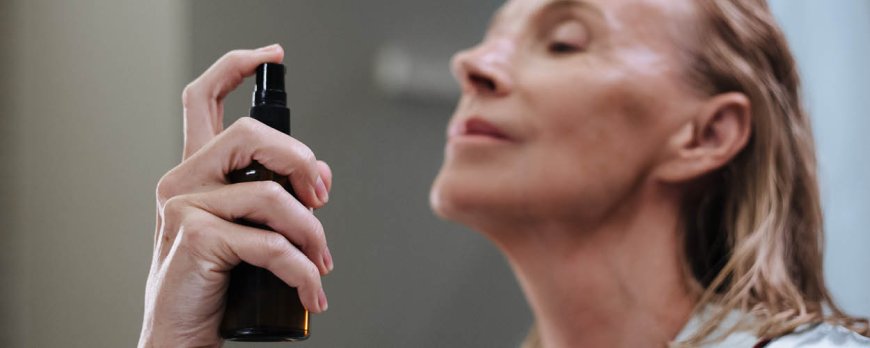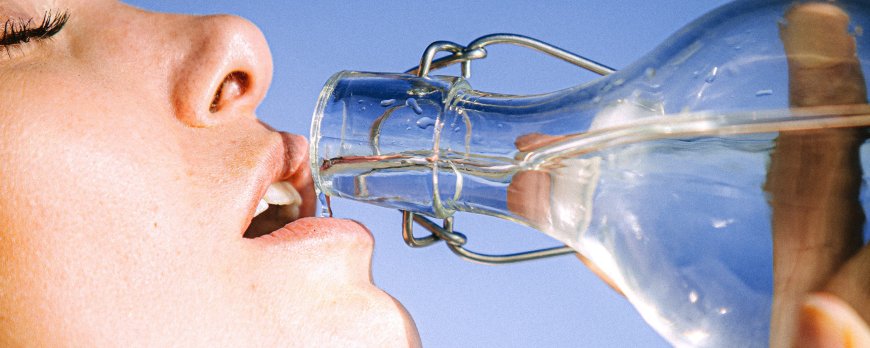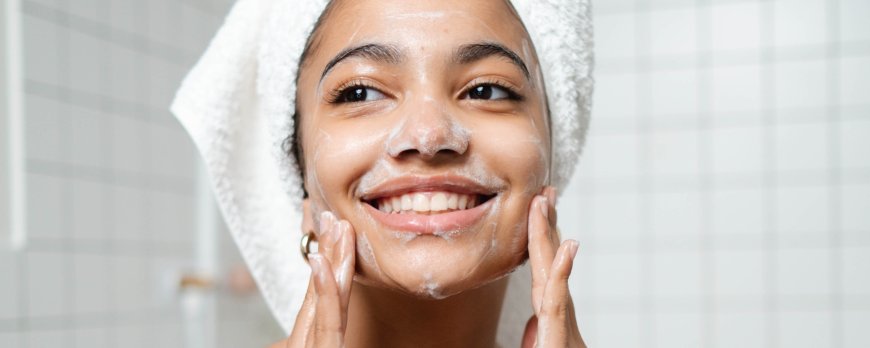Is Water Good for Your Skin?
Is water good for your skin? Explore the numerous beneficial effects of hydration on skin health and vitality in our comprehensive guide.

Is Water Good for Your Skin?
Water is often hailed as a miracle elixir for overall health, but does it really have a positive impact on your skin? While drinking water is important for staying hydrated, its direct benefits for your skin may be limited. In this article, we will explore the question of whether water is truly beneficial for the skin and discuss the importance of proper hydration for skin health.
Key Takeaways:
- Drinking water alone may not directly improve the health or appearance of your skin.
- Proper hydration helps maintain the outermost layer of the skin, but it does not address the aging process or collagen breakdown.
- A balanced skincare routine, including moisturizing, wearing sunscreen, and a healthy lifestyle, is essential for maintaining healthy skin.
- Diet, lifestyle, and topical products can influence skin hydration levels and overall skin health.
- Consuming enough water and incorporating water-rich foods into your diet is beneficial for skin hydration.
The Role of Hydration in Skin Health
Hydration plays a vital role in maintaining the health and vitality of your skin. While drinking water alone may not directly improve the appearance of your skin or reduce wrinkles, proper hydration is essential for overall skin health. By maintaining the outermost layer of the skin, known as the stratum corneum, hydration helps to improve skin tone and texture.
However, it's important to note that hydration alone is not enough to address the aging process or the breakdown of collagen and elastin in the skin. To keep your skin looking youthful and vibrant, you also need to incorporate other skincare practices into your routine. This includes moisturizing regularly, wearing sunscreen to protect against harmful UV rays, and maintaining a healthy lifestyle with a balanced diet.
Various factors can influence the hydration levels and overall health of your skin. Your diet and lifestyle choices, as well as the use of topical products, can all have an impact. To ensure optimal hydration, it is recommended to consume about 13 cups of water for men and 9 cups of water for women per day. However, individual factors such as sweat and heat-induced water loss may vary these requirements.
Additionally, incorporating water-rich foods into your diet can support hydration from within. Avoiding excessive alcohol consumption and limiting sugary sweets is also beneficial, as they can negatively impact the health and hydration of your skin. In addition to water consumption, there are other skincare practices that can enhance skin hydration. Using humectants and moisturizers, exfoliating the skin, and incorporating serums into your routine can all contribute to maintaining optimal skin hydration and overall health.
The Stratum Corneum and Hydration
The stratum corneum is a crucial component of your skin's barrier function, and water is essential for its proper maintenance. This outermost layer of the skin acts as a protective barrier against external irritants, pollutants, and excess water loss. When the stratum corneum is adequately hydrated, it remains intact, preventing the penetration of harmful substances while keeping the skin plump and supple.
Proper hydration of the stratum corneum is necessary to maintain its integrity and function. When the skin lacks sufficient hydration, the barrier becomes compromised, leading to dryness, flakiness, and increased sensitivity. Without enough water, the skin's ability to protect itself diminishes, making it more prone to damage from environmental factors and accelerating the aging process.
To keep the stratum corneum hydrated, it is important to use both internal and external methods. Drinking an adequate amount of water helps replenish moisture from within, supporting overall hydration levels in the body, including the skin. Additionally, using topical moisturizers and humectants can help attract and retain water in the stratum corneum, enhancing its ability to protect the skin and maintain its healthy appearance.
Incorporating a well-balanced skincare routine that includes adequate hydration can have a positive impact on the health and appearance of your skin. By prioritizing hydration and using suitable skincare products, you can ensure that your stratum corneum remains hydrated, resilient, and effective in its protective function.

The Relationship Between Water and Aging
While hydration is important, it is not a magic solution to reverse the signs of aging. Drinking water alone may not directly improve the health or appearance of your skin. However, proper hydration plays a vital role in maintaining overall skin health and can contribute to a more youthful appearance.
Hydration helps maintain the outermost layer of the skin, known as the stratum corneum. This layer acts as a barrier, protecting the skin from external elements and locking in moisture. When the stratum corneum is well-hydrated, it improves the skin's elasticity and suppleness, resulting in a smoother and more radiant complexion.
While water is essential for skin hydration, it is important to note that other factors, such as the breakdown of collagen and elastin in the skin, contribute to the aging process. To combat these effects, it is necessary to incorporate a comprehensive skincare routine. This includes moisturizing regularly, wearing sunscreen to protect against harmful UV rays, and maintaining a healthy lifestyle with a balanced diet rich in antioxidants and vitamins.
In addition to water consumption, factors like diet, lifestyle, and the use of topical products can influence the hydration levels and overall health of your skin. It is recommended to consume about 13 cups of water for men and 9 cups of water for women per day, but individual water intake may vary depending on factors like sweat or heat-induced water loss. In order to further enhance skin hydration, it is beneficial to incorporate water-rich foods into your diet and to limit the consumption of alcohol and sugary sweets.
While regular hydration is crucial for healthy skin, it is also beneficial to incorporate other skincare practices into your routine. Using humectants and moisturizers can help lock in moisture and improve skin hydration. Exfoliating the skin regularly can remove dead skin cells and promote the absorption of skincare products, while serums can provide additional hydration and target specific skin concerns.
The Importance of a Balanced Skincare Routine
While water is beneficial for your skin, it should be part of a holistic skincare routine. Drinking water alone may not have a direct impact on reducing wrinkles or making pores smaller, but it is still important for overall health and hydration. Proper hydration helps maintain the outermost layer of the skin, known as the stratum corneum, and can improve overall skin tone.
In addition to staying hydrated, it is crucial to moisturize your skin regularly. Moisturizers help to lock in moisture and create a protective barrier, keeping your skin hydrated and preventing dryness. It is recommended to choose a moisturizer that suits your skin type and apply it daily, especially after cleansing or showering.
Another essential aspect of a balanced skincare routine is sun protection. UV rays can cause premature aging, wrinkles, and sun damage, so it's important to wear sunscreen every day, even on cloudy days. Look for a broad-spectrum sunscreen with SPF 30 or higher and reapply it every two hours when exposed to the sun.
A healthy lifestyle and a balanced diet also play a significant role in skin health. Consuming a variety of fruits, vegetables, whole grains, and lean proteins can provide essential nutrients and antioxidants that support skin health. Additionally, limiting alcohol and sugary sweets can help prevent skin dehydration and inflammation.
Key Points:
- Water is important for overall health and hydration, but it does not directly reduce wrinkles or make pores smaller.
- Proper hydration helps maintain the stratum corneum and can improve overall skin tone.
- Moisturizing your skin regularly and wearing sunscreen are crucial for a balanced skincare routine.
- A healthy lifestyle and balanced diet contribute to skin health, while alcohol and sugary sweets can negatively impact skin hydration.
By incorporating these habits into your daily routine, you can help keep your skin healthy, hydrated, and radiant. Remember, skincare is not just about drinking water, but rather taking a comprehensive approach to nourish and protect your skin from the inside out.

Factors Influencing Skin Hydration
Achieving optimal skin hydration involves more than just drinking water. While staying hydrated is important for overall health, there are several other factors that can affect the hydration levels and overall health of your skin. Here are some of the key factors to consider:
- Diet: Your diet plays a crucial role in skin hydration. Consuming water-rich foods such as fruits and vegetables can provide your skin with the necessary hydration from within. Foods like watermelon, cucumbers, and strawberries are excellent choices to include in your diet.
- Lifestyle: Certain lifestyle choices can impact the hydration of your skin. Factors such as excessive sun exposure, smoking, and alcohol consumption can contribute to dry and dehydrated skin. It's important to limit these habits and prioritize a healthy lifestyle to maintain optimal skin hydration.
- Topical Products: The skincare products you use on your skin can also affect its hydration levels. Moisturizers and serums containing ingredients like hyaluronic acid, glycerin, and ceramides can help lock in moisture and improve skin hydration. Exfoliating regularly can also promote healthier and more hydrated skin by removing dead skin cells.
By considering these factors and incorporating them into your skincare routine, you can enhance the hydration levels of your skin and improve its overall health and appearance.

Recommended Water Intake for Skin Health
The amount of water you should drink to maintain healthy skin depends on several factors. While the general recommendation is to consume about 13 cups of water for men and 9 cups of water for women per day, individual needs may vary. Factors such as sweat or heat-induced water loss, physical activity level, and overall health can impact your hydration requirements.
To ensure optimal skin hydration, it's important to listen to your body's signals for thirst and drink water regularly throughout the day. If you engage in intense physical activity or live in a hot climate, you may need to increase your water intake to account for greater fluid loss.
Factors influencing water intake:
- Climate: Hot and dry climates can increase water loss through perspiration, making it important to drink more water to replenish moisture.
- Physical activity: Sweating during exercise can lead to increased water loss, so it's crucial to drink water before, during, and after workouts to maintain hydration levels.
- Overall health: Certain health conditions, such as diabetes or kidney disease, may require adjustments to water intake. It's best to consult with a healthcare professional for personalized recommendations.
In addition to consuming water, incorporating water-rich foods into your diet can also contribute to skin hydration. Fruits and vegetables like watermelon, cucumber, and oranges are excellent sources of hydration and can provide your skin with essential vitamins and minerals.
To maintain healthy and vibrant skin, it's crucial to prioritize overall health and hygiene practices. Drinking an adequate amount of water, moisturizing regularly, wearing sunscreen, and maintaining a balanced diet are key factors in promoting optimal skin health. By incorporating these practices into your daily routine, you can help keep your skin hydrated and nourished.

Foods and Substances Affecting Skin Hydration
In addition to drinking water, certain foods and substances can either enhance or hinder your skin's hydration. Incorporating water-rich foods into your diet can provide an extra boost of hydration for your skin. Some examples of water-rich foods include cucumbers, watermelon, strawberries, and oranges. These fruits and vegetables not only contain high water content but also provide essential vitamins and minerals that contribute to overall skin health.
On the other hand, substances like alcohol and sugary sweets can have a negative impact on your skin's hydration. Alcohol is known to be dehydrating and can strip the skin of its natural moisture, leading to dryness and dullness. Similarly, consuming excessive amounts of sugary sweets can cause inflammation in the body, which can have a detrimental effect on the health and appearance of your skin.
If you're looking to enhance skin hydration, it's important to maintain a balanced diet that includes plenty of water-rich foods and limit your consumption of alcohol and sugary treats. By incorporating these dietary changes, along with a consistent skincare routine that includes moisturizing, exfoliating, and using serums, you can help improve the overall hydration levels and health of your skin.
Enhancing Skin Hydration Beyond Water Consumption
While water is a vital component of skin hydration, there are other steps you can take to enhance its effectiveness. Incorporating humectants and moisturizers into your skincare routine can help attract and retain moisture in the skin. Humectants, such as hyaluronic acid and glycerin, have the ability to draw in water from the environment and deliver it to the skin, providing a boost of hydration. Look for products that contain these ingredients and apply them after cleansing and toning. Moisturizers, on the other hand, form a protective barrier on the skin's surface, preventing water loss and locking in moisture. Opt for moisturizers that are rich in emollients and occlusives, like shea butter or dimethicone, to keep your skin hydrated throughout the day.
Exfoliating the skin regularly can also improve its ability to absorb and retain moisture. Dead skin cells can accumulate on the surface, leading to a barrier that hinders hydration. By gently exfoliating, you can remove this layer of dead cells and allow your moisturizers and serums to penetrate more effectively. Choose a gentle exfoliant that suits your skin type, such as a chemical exfoliant with alpha or beta hydroxy acids, or a physical exfoliant with fine granules. Be sure to follow up with a hydrating product to replenish moisture.
Incorporating serums into your skincare routine can provide an extra boost of hydration. Serums are lightweight liquids that are packed with active ingredients, formulated to target specific skincare concerns. Look for serums that contain hydrating ingredients like hyaluronic acid, niacinamide, or ceramides. These ingredients can help replenish moisture, strengthen the skin's barrier function, and improve overall hydration. Apply a few drops of serum after cleansing and toning, and before applying moisturizer.
In conclusion, while drinking water is important for skin hydration, it is not the only factor to consider. Enhancing skin hydration goes beyond water consumption and involves incorporating humectants, moisturizers, exfoliation, and serums into your skincare routine. By following these steps, you can help improve your skin's ability to attract, absorb, and retain moisture, resulting in a healthier and more hydrated complexion.
Conclusion
While water alone may not be a magical solution for flawless skin, maintaining proper hydration and implementing a comprehensive skincare routine are essential for skin health and vitality.
Drinking water is important for overall health and hydration. However, it does not necessarily have a significant impact on reducing wrinkles or making pores smaller. Proper hydration does help maintain the outermost layer of the skin, known as the stratum corneum, and can improve overall skin tone.
However, it is important to understand that hydration alone is not enough to address the aging process or the breakdown of collagen and elastin in the skin. To maintain healthy and vibrant skin, it is crucial to also moisturize, wear sunscreen, and maintain a healthy lifestyle with a balanced diet.
Factors such as diet, lifestyle, and the use of topical products can influence the hydration levels and overall health of your skin. It is recommended to consume about 13 cups of water for men and 9 cups of water for women per day, but this may vary depending on individual factors such as sweat or heat-induced water loss. Additionally, incorporating water-rich foods into your diet and limiting alcohol and sugary sweets can positively impact the health and hydration of your skin.
Furthermore, using humectants and moisturizers, exfoliating the skin, and using serums can also help enhance skin hydration. By prioritizing overall health and hygiene practices, you can maintain healthy and vibrant skin that looks and feels its best.
FAQ
Is water good for your skin?
Drinking water alone may not directly improve the health or appearance of your skin.
What is the role of hydration in skin health?
Hydration is important for overall health and can improve skin tone, but it does not significantly reduce wrinkles or make pores smaller.
How does water impact the stratum corneum?
Water helps maintain the outermost layer of the skin, known as the stratum corneum, and contributes to overall skin health.
What is the relationship between water and aging?
While hydration is important, it alone cannot address the aging process or the breakdown of collagen and elastin in the skin.
Why is a balanced skincare routine important?
A comprehensive skincare routine, including proper hydration, moisturization, sun protection, and a healthy lifestyle, is vital for maintaining healthy skin.
What factors influence skin hydration?
Diet, lifestyle, and the use of topical products can all affect the hydration levels and overall health of the skin.
What is the recommended water intake for skin health?
It is recommended to consume about 13 cups of water for men and 9 cups of water for women per day, but this may vary depending on individual factors.
Are there any foods or substances that affect skin hydration?
Consuming water-rich foods and limiting alcohol and sugary sweets can positively or negatively impact the health and hydration of your skin.
How can skin hydration be enhanced beyond water consumption?
Using humectants and moisturizers, exfoliating the skin, and incorporating serums into your skincare routine can help improve skin hydration.
What is the conclusion?
Overall, it is important to prioritize overall health and hygiene practices in order to maintain healthy and vibrant skin.


































































































































